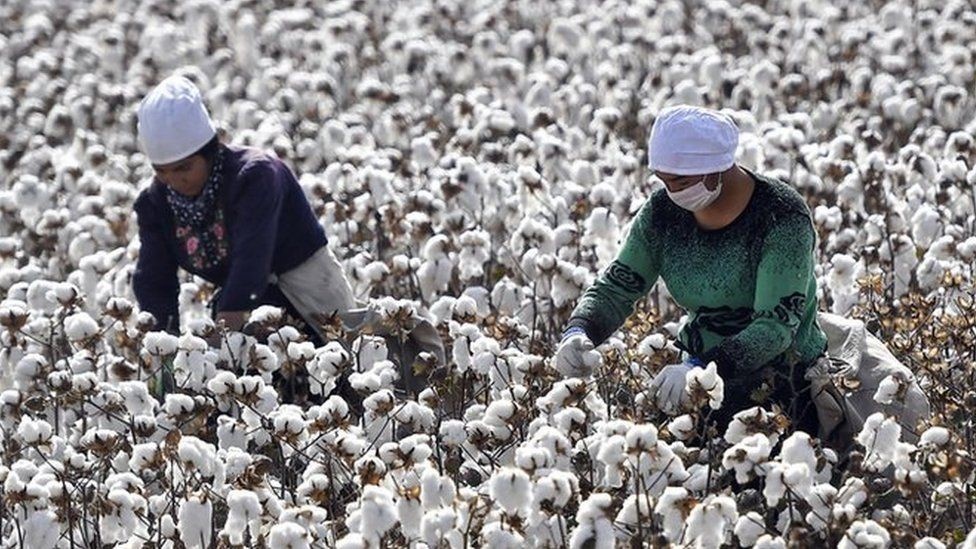
Why Skills-First Leadership Is Replacing the Ivy League Playbook in the C-Suite
The old prestige pyramid—where Ivy League degrees and blue-chip consulting backgrounds paved the way to the CEO seat—is cracking.

January 14, 2021:UK doing business in China will face issues if they can’t show their products aren’t linked to forced labor in the Xinjiang region.
Foreign Secretary Dominic Raab told MPs exports that the goods would be ensured on being used in camps in Uighur.
UK firms above a specific size must show they are trying to avoid using slavery in their supply chains.
If they fail to do, there is no penalty yet.
There will also be new guidance for firms and public sector organizations about the risks of trading with Xinjiang. Mr. Raab said there is an increase in evidence of more than a million Uighurs and other minorities being held in forced labor camps. The law needs to go further said, Campaigners.
“The government has missed an opportunity to guide a meaningful shift away from exploitation and forced labor wherever it occurs,” Joanna Ewart-James, executive director of the anti-slavery organization Freedom United told Reuters.
Marks & Spencer, last week signed onto a call to action on human rights abuses in China’s Xinjiang region. M&S uses around 40,000 tonnes of lint cotton each year from various sources
The call to action comes from a coalition of civil society organizations and labor unions who want to finish abuses against the Uighur people.
The coalition said it is almost sure brands currently producing apparel, textiles, yarn, or cotton from the region are profiting from human rights violations, including forced labor.
Marks & Spencer sources its cotton through businesses accredited with the Better Cotton Initiative (BCI), a not-for-profit organization that focuses on sustainable production.
In March last year, BCI suspended its activities in Xinjiang, and as a result, there is no new licensed BCI cotton coming from the region.
According to BBC, new evidence came out that China is forcing hundreds of thousands of Uighurs and other minorities into hard, manual labor in Xinjiang’s cotton fields in December.
The report increased pressure on clothing retailers to remove Xinjiang cotton from their supply chains.

The old prestige pyramid—where Ivy League degrees and blue-chip consulting backgrounds paved the way to the CEO seat—is cracking.

Loud leaders once ruled the boardroom. Charisma was currency. Big talk drove big valuations.

But the CEOs who make history in downturns aren’t the ones with the deepest cuts

Companies invest millions in leadership development, yet many of their best executives leave within a few years. Why?

The most successful business leaders don’t just identify gaps in the market; they anticipate future needs before anyone else.

With technological advancements, shifting consumer expectations, and global interconnectedness, the role of business leaders

Investor confidence in France is deteriorating as political gridlock and budgetary uncertainty deepen.

The Fort McMurray First Nation Group of Companies is the wholly owned business entity of Fort McMurray 468 First Nation. It was established in 1987 as Christina River Enterprises, and the organization rebranded as FMFN Group in 2021. Providing Construction, Custodial, Petro-Canada Fuel & Convenience Store, and Transportation services to a broad portfolio of customers, the Group of Companies is creating financial stability and prosperity for the Nation.

Maushum Basu is a visionary leader who inspires his team with a clear, compelling purpose. Unafraid to take calculated risks, he understands that growth often stems from change and innovation. His deep commitment to both Airia Brands, Inc.

When speaking with Martin Paquette, one thing is immediately apparent: he’s honest. His transparency is refreshing. While many shy away from such vulnerability, Paquette sees it as a force to reckon with. The incredible emotional intelligence speaks to years of looking within—it’s also what allows him to acknowledge his mistakes gracefully and use them as opportunities to innovate.

Leave us a message
Subscribe
Fill the form our team will contact you
Advertise with us
Fill the form our team will contact you